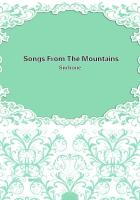INEVITABLE Paris beckoned, and resistance became more and more futile as the store of years grew less; for the world contains no other spot than Paris where education can be pursued from every side. Even more vigorously than in the twelfth century, Paris taught in the twentieth, with no other school approaching it for variety of direction and energy of mind. Of the teaching in detail, a man who knew only what accident had taught him in the nineteenth century, could know next to nothing, since science had got quite beyond his horizon, and mathematics had become the only necessary language of thought; but one could play with the toys of childhood, including Ming porcelain, salons of painting, operas and theatres, beaux-arts and Gothic architecture, theology and anarchy, in any jumble of time; or totter about with Joe Stickney, talking Greek philosophy or recent poetry, or studying "Louise" at the Opéra Comique, or discussing the charm of youth and the Seine with Bay Lodge and his exquisite young wife. Paris remained Parisian in spite of change, mistress of herself though China fell. Scores of artists -- sculptors and painters, poets and dramatists, workers in gems and metals, designers in stuffs and furniture -- hundreds of chemists, physicists, even philosophers, philologists, physicians, and historians -- were at work, a thousand times as actively as ever before, and the mass and originality of their product would have swamped any previous age, as it very nearly swamped its own; but the effect was one of chaos, and Adams stood as helpless before it as before the chaos of New York.
His single thought was to keep in front of the movement, and, if necessary, lead it to chaos, but never fall behind. Only the young have time to linger in the rear.
The amusements of youth had to be abandoned, for not even pugilism needs more staying-power than the labors of the pale-faced student of the Latin Quarter in the haunts of Montparnasse or Montmartre, where one must feel no fatigue at two o'clock in the morning in a beer- garden even after four hours of Mounet Sully at the Théatre Français. In those branches, education might be called closed. Fashion, too, could no longer teach anything worth knowing to a man who, holding open the door into the next world, regarded himself as merely looking round to take a last glance of this.
The glance was more amusing than any he had known in his active life, but it was more -- infinitely more -- chaotic and complex.
Still something remained to be done for education beyond the chaos, and as usual the woman helped. For thirty years or there-abouts, he had been repeating that he really must go to Baireuth. Suddenly Mrs. Lodge appeared on the horizon and bade him come. He joined them, parents and children, alert and eager and appreciative as ever, at the little old town of Rothenburg-on-the Taube, and they went on to the Baireuth festival together.
Thirty years earlier, a Baireuth festival would have made an immense stride in education, and the spirit of the master would have opened a vast new world. In 1901 the effect was altogether different from the spirit of the master. In 1876 the rococo setting of Baireuth seemed the correct atmosphere for Siegfried and Brünhilde, perhaps even for Parsifal.
Baireuth was out of the world, calm, contemplative, and remote. In 1901 the world had altogether changed, and Wagner had become a part of it, as familiar as Shakespeare or Bret Harte. The rococo element jarred. Even the Hudson and the Susquehanna -- perhaps the Potomac itself -- had often risen to drown out the gods of Walhalla, and one could hardly listen to the "Götterdämmerung" in New York, among throngs of intense young enthusiasts, without paroxysms of nervous excitement that toned down to musical philistinism at Baireuth, as though the gods were Bavarian composers.
New York or Paris might be whatever one pleased -- venal, sordid, vulgar -- but society nursed there, in the rottenness of its decay, certain anarchistic ferments, and thought them proof of art. Perhaps they were; and at all events, Wagner was chiefly responsible for them as artistic emotion. New York knew better than Baireuth what Wagner meant, and the frivolities of Paris had more than once included the rising of the Seine to drown out the Étoile or Montmartre, as well as the sorcery of ambition that casts spells of enchantment on the hero. Paris still felt a subtile flattery in the thought that the last great tragedy of gods and men would surely happen there, while no one could conceive of its happening at Baireuth, or would care if it did. Paris coquetted with catastrophe as though it were an old mistress -- faced it almost gaily as she had done so often, for they were acquainted since Rome began to ravage Europe; while New York met it with a glow of fascinated horror, like an inevitable earthquake, and heard Ternina announce it with conviction that made nerves quiver and thrill as they had long ceased to do under the accents of popular oratory proclaiming popular virtue. Flattery had lost its charm, but the Fluch-motif went home.
Adams had been carried with the tide till Brünhilde had become a habit and Ternina an ally. He too had played with anarchy; though not with socialism, which, to young men who nourished artistic emotions under the dome of the Pantheon, seemed hopelessly bourgeois, and lowest middle-class.
Bay Lodge and Joe Stickney had given birth to the wholly new and original party of Conservative Christian Anarchists, to restore true poetry under the inspiration of the "Götterdämmerung." Such a party saw no inspiration in Baireuth, where landscape, history, and audience were -- relatively -- stodgy, and where the only emotion was a musical dilettantism that the master had abhorred.














